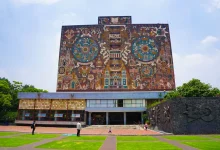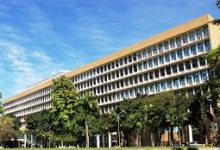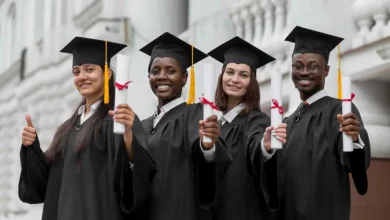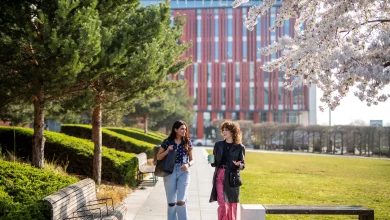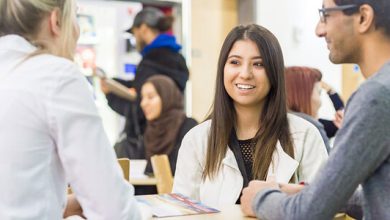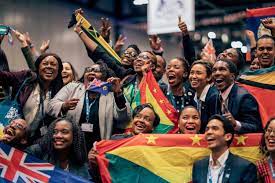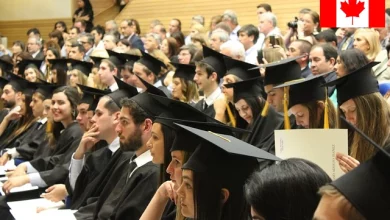Fully Funded Scholarships For Students With Visual Impairment 2024/2025
For students with visual impairments, finding the means to pay for an education can be especially challenging. Thankfully, there are a number of fully funded scholarships available to help with this expense.
These scholarships are designed specifically for students with visual impairments, and they can provide a much-needed financial boost. In addition to providing financial support, these scholarships also offer valuable resources and support services. With the right scholarship, students with visual impairments can pursue their educational goals and achieve success in their studies.
National Federation of the Blind Scholarships
Each year, the National Federation of the Blind (NFB) Scholarship Program provides 30 awards to legally blind students across the United States who exhibit notable academic achievements. These scholarships vary in amount, with the potential to receive anywhere from $3,000 to $12,000.
Eligibility Criteria:
- Must be legally blind in both eyes.
- Must be a US citizen or permanent resident.
- Must be enrolled in or planning to enroll in a full-time post-secondary program at an accredited institution in the US.
- Must demonstrate academic achievement, community involvement, and leadership potential.
Selection Process:
- Applications are reviewed by a panel of judges based on academic merit, personal statement, community service, and involvement in the blind community.
Hence, NFB Scholarships provide more than just monetary aid; they offer a platform for community building and personal growth within the visually impaired community.
APH Scholarships
The American Printing House for the Blind (APH) is another organization committed to supporting the academic pursuits of visually impaired students. Their scholarship opportunities include the APH Louis Scholarship, a $1,000 award open to any visually impaired student preparing for the 2024-2025 academic year.
Eligibility Criteria:
- Varies depending on the specific scholarship program, but generally requires:
- Legal blindness
- US citizenship or permanent residency
- Enrollment in an accredited college or university program
- Demonstrated academic achievement
- Financial need
Scholarship Awards:
- Varies by program, but typically ranges from $1,000 to $5,000 per year.
- Some scholarships are renewable for multiple years based on satisfactory academic performance and continued program eligibility.
Selection Process:
- Applications are reviewed by a committee based on eligibility criteria, academic merit, personal statement, financial need,
This specialized scholarship illustrates APH’s dedication to empowering students to become advocates and professionals in the field of visual impairment services. Both APH scholarships offer not just financial aid, but a commitment to ongoing support and empowerment for visually impaired students.
Read Also: Fully Funded Zimbabwe Scholarships
American Council of the Blind Scholarships
The American Council of the Blind (ACB) is committed to supporting the education of visually impaired students through its annual scholarship program. It awards approximately 20 scholarships every year, each ranging from $1,000 to $4,000.
Eligibility Criteria:
- Legal blindness in both eyes.
- US citizen or permanent resident.
- Enrolled in or planning to enroll in an accredited post-secondary program in the US.
- Meet specific requirements of the chosen scholarship (if applicable).
Selection Process:
- Applications are reviewed by a committee based on academic merit, personal statement, community service, involvement in the blind community, and financial need.
- Finalists may be interviewed.
Application Process:
- Applications are typically accepted in the fall with varying deadlines for each scholarship.
- Submit applications online through the ACB website: [[https www acb org scholarships]]
- Required materials include transcripts, a personal statement, letters of recommendation, and proof of legal blindness and financial need.
Through this program, ACB is not only easing the financial burden of higher education for visually impaired students but also cultivating a nurturing environment for them to thrive in their academic and professional pursuits.
FAQS
Which is the best resource for a visually challenged person?
There’s no single “best” resource, as individual needs vary. However, several excellent resources can offer support and information:
- National Federation of the Blind (NFB): [[https www nfb org]] Provides advocacy, resources, and community for legally blind individuals.
- American Council of the Blind (ACB): [[https www acb org]] Offers scholarships, information, and community support for those with vision loss.
- American Printing House for the Blind (APH): [[https www aph org]] Develops and provides accessible educational materials and technology for individuals with visual impairments.
- National Association of Blind Students (NABS): [[https www nabs net]] Supports and empowers blind and visually impaired students.
- Local agencies and organizations: Many local organizations offer services and support specific to your region and needs.
What do people with low vision do?
People with low vision utilize various strategies to manage daily tasks and maximize their remaining sight. This could include:
- Using low vision aids: Magnifiers, telescopes, electronic devices with screen magnification, and specialized lighting.
- Adaptive technology: Screen readers, voice-activated software, and other tools for navigating digital environments.
- Learning specific techniques: Braille literacy, orientation and mobility training, and daily living skills development.
- Advocating for accessibility: Ensuring environments and information are accessible and usable for individuals with low vision.
What can help people with poor eyesight?
Many options can assist people with poor eyesight, depending on their specific needs and vision level:
- Eye exams and corrective lenses: Regular eye care to diagnose and address vision problems with glasses, contact lenses, or other corrective interventions.
- Low vision aids: Mentioned above, these tools magnify or enhance remaining vision.
- Surgery: In some cases, surgery may improve vision, depending on the underlying cause of vision loss.
- Rehabilitation training: Learning new skills and strategies to adapt to vision loss and maintain independence.
Who helps visually impaired people?
Many professionals and organizations support individuals with visual impairments:
- Ophthalmologists and optometrists: Eye care specialists diagnose and treat eye conditions.
- Orientation and mobility instructors: Teach individuals safe and efficient travel techniques with vision loss.
- Rehabilitation counselors: Assist with setting goals, accessing resources, and navigating life with vision loss.
- Technology specialists: Train individuals on using assistive technology effectively.
- Peer mentors and support groups: Connect individuals with others who understand the challenges and triumphs of vision loss.
Is one eye blind considered a disability?
Legal blindness, defined as vision acuity of 20/200 or worse in the better eye with correction, qualifies as a disability under some legal definitions. Monocular vision (having sight in only one eye) can also be considered a disability depending on the severity of vision loss and its impact on daily life. It’s crucial to consult with an ophthalmologist and rehabilitation professionals to understand your specific situation and access appropriate support.
Conclusion
In conclusion, securing a fully funded scholarship is a real game-changer for students with visual impairment. Scholarships like those offered by the National Federation of the Blind, American Printing House for the Blind, American Council of the Blind, and Wells Fargo Scholarship Program for People with Disabilities not only provide necessary financial aid, but also an array of supportive services, from mentorship to networking opportunities at national conventions.
By easing the financial burden and offering community support, these scholarships empower visually impaired students to access higher education and excel in their chosen fields. It’s encouraging to see these organizations recognize the potential and resilience of visually impaired students, and their commitment to fostering a diverse and inclusive society. Students and their families are urged to explore these scholarships and take advantage of the resources available to them. The pursuit of higher education should be a right accessible to everyone, regardless of their physical limitations. Remember, a disability does not define a person; it’s their passion, determination, and resilience that truly shapes their success.
